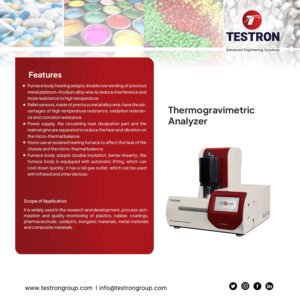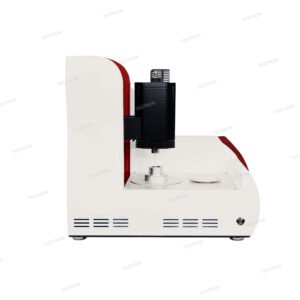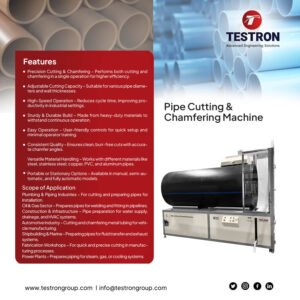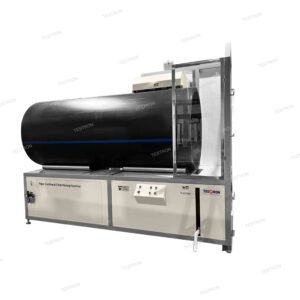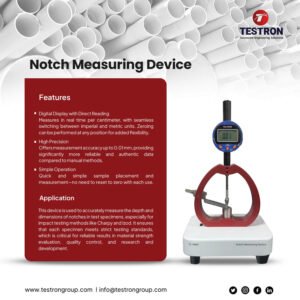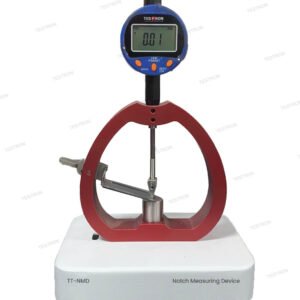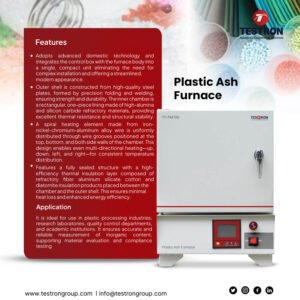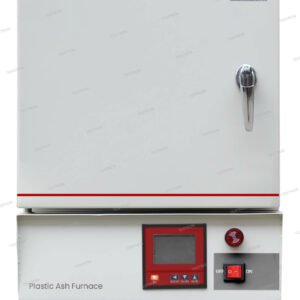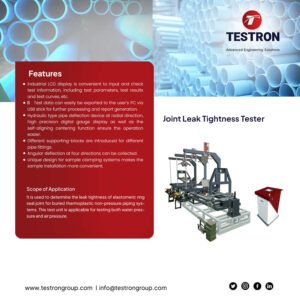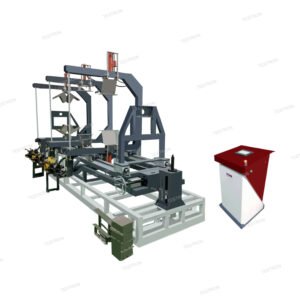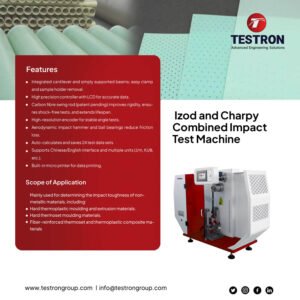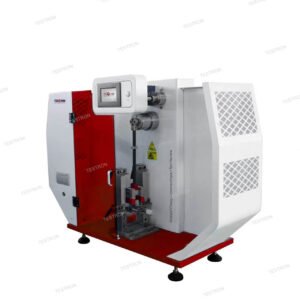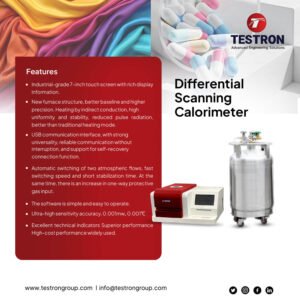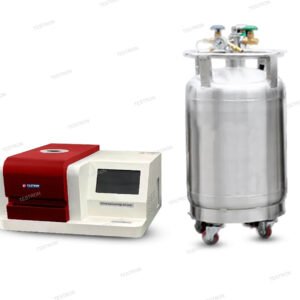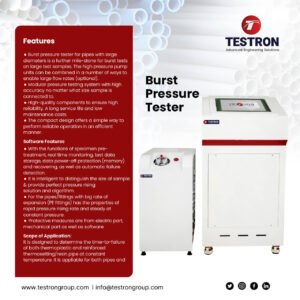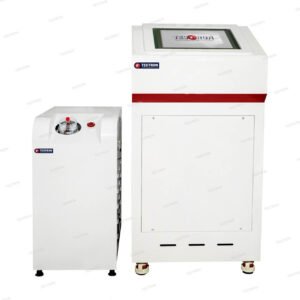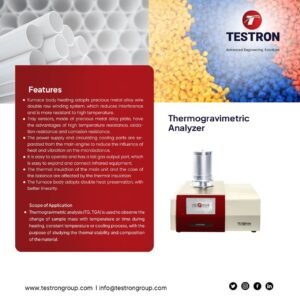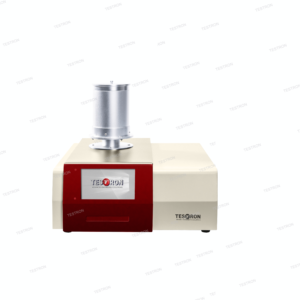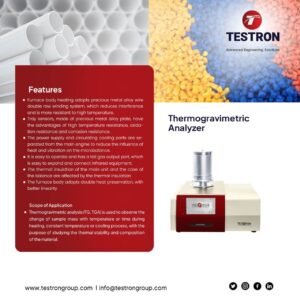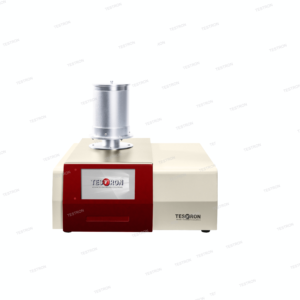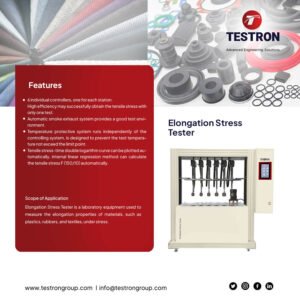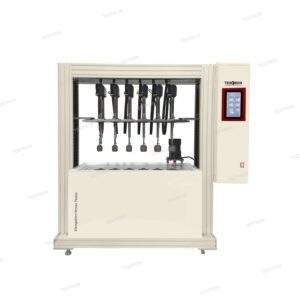Pipe Testing Equipment: Overview
Pipe testing is an integral part of quality assurance in the architecture, engineering and construction (AEC) sector. These systematic evaluations help in detecting potential issues within piping systems, ranging from leaks to structural weaknesses. There are a wide range of pipes, offering a wide range of applications from transporting oil and gas to conveying water and more. Pipe testing is one of the crucial aspects of industrial practices, as it ensures the integrity and safety of pipelines. It involves the use of various pipe testing equipment and methods, such as pressure testing, leak detection, and flow rate testing, to identify any defects or weaknesses in the pipeline.
As one of the leading pipe testing manufacturers in the USA, we understand this critical need. At TESTRON GROUP, best pipe testing equipment suppliers, we offer a comprehensive range of pipe testing equipment and test methods. With a global presence in Europe, Saudi Arabia, India, South Africa, UAE, and China, we’re committed to providing reliable and innovative pipe testing solutions wherever your project takes you.
Different Types of Pipe Testing Methods
Here’s a quick look at some common methods used to evaluate pipe health, highlighting the key parameters involved:
Hydrostatic Pressure test
This is a widely used test for pipes designed to carry fluids under pressure. The pipe is filled with water and pressurized to a level exceeding its normal operating pressure. This helps identify leaks, weak points, and potential bursts. The test pressure is typically 1.5 times the rated pressure of the pipe.
TT-HPS Hydrostatic Pressure Tester Standards:
ISO 1167, ASTM D 1598, ASTM D 1599
Technical specifications:
- Output: Up to 100, 160 bar or 200 bar
- Capacity: 1 to 20 stations (30 stations on request)
- Pressure resolution: 0.01 bar
- Timing range: 0 ~ 10000h
- Time resolution: 1s
- Timing mode: Counter-up, counter-down
Ring Stiffness Test
This test measures a pipe’s ability to resist deformation under external loads applied perpendicular to its axis. A pipe section is subjected to a three-point or four-point bending load, and the deflection is measured. The test determines the pipe’s stiffness, which is critical for underground installations or pipes exposed to external pressure from soil or surrounding materials.
Ring Stiffness Tester Standards:
ISO9967, ISO9969, ISO13968
Ring Stiffness Tester Test parameters:
- Test parameters RST-52 RST-53
- Max. Force 50KN / 100KN
- Accuracy grade One grade
- Load measuring range 0.2-100%FS
- The error of force within + 1%
- The error of deflection Within + 1%
- Resolution of inner diameter measuring device 0.01mm
- Deflection measuring range 0 – 100%FS
- Testing speeding 0.5 – 200mm/min
- The error of Speed within ‡ 1%
- Operating method PC control
- Max. span between two columns 1000mm
- Max. inner diameter 2000mm 3000mm
- Max. compression space (max. OD) 2100mm 3300mm
- Dimension (L x D x H) 650×1360×3300mm 650×1360×4300mm
- Power supply 220VAC 50Hz 2kVA
Heat Deflection Test
This test evaluates a pipe’s resistance to deformation under elevated temperatures and sustained load. A specific load is applied to a pipe segment while it’s heated at a controlled rate. The temperature at which the pipe deflects a predetermined amount is recorded. This test is crucial for pipes used in hot water lines or applications exposed to high temperatures.
HDT/VICAT Tester Standards:
ISO 75, ISO 306, ASTM D 1525, ASTM D 648
HDT/VICAT Tester Parameters:
- Number of stations 3/4/6
- Temperature measuring point 1
- Temperature range RT to 300°C
- Temperature ramps 50°C/h, 120°c/h or others on request
- Deflection range -1.00 to 9.00mm
- Deflection measuring instrument Digital gauge coupled with communication interface
- Test capability HDT & VICAT
- Control way Computer and application software
- Test graphs Deflection or Penetration curves Vs Time or Temperature
- The span of specimen support (HDT) 64 or 100mm
- HDT
- Flexural stress Method A-1.8 Mpa
- Method B-0.45 Мра
- Method C-8.0 Mpa
- Vicat
- VICAT mass 10N and 50N
Notched Constant Ligament Stress test
This destructive test measures a pipe’s resistance to crack propagation. A notch is machined into a pipe sample, and it’s then subjected to a constant tensile stress. The time it takes for the crack to propagate through the sample is measured. This test helps assess the pipe’s toughness and susceptibility to crack growth under stress.
Test Standards:
ASTM 5397-99 and ASTM F2136-18 are standards that are used to evaluate the stress crack resistance of polyolefin geomembranes and HDPE resins or pipe respectively.
Technical Parameters:
- Test temperature – RT to 80°C
- Temperature accuracy – +0.5°C
- Number of test stations – 20 (may test 20 specimens)
- Level ratio – 1:3
- Max. load – 1.5 kg (load on specimen is up to 4.5 kg)
- Timing range – 0 to 9999h
- Timing accuracy – $10 s
Optional Accessory: TT-NNI Notch nicking device
Falling Weight Impact Test
This test evaluates a pipe’s resistance to fracture under a sudden impact load. A weighted tup (hammer) is dropped onto a pipe sample from a predetermined height. The test determines the amount of energy absorbed by the pipe before fracture and identifies its impact toughness. This test is crucial for pipes used in applications where they might experience impacts, such as pipelines in earthquake-prone areas.
Falling Weight Impact Tester Standards:
ASTM D 2444, UL651-Schedule 40 and 80 rigid PVC conduit
Falling Weight Impact Tester Technical parameters:
- Impact height: 100mm to 3350mm
- Height error: #3mm
- Striker rising speed: 12m/min
- Striker weight: 9.1kg (951) and 34kg (q150)
- Test specimen {outside diameter) : 1/2″ to 6″, specimen length: 150mm
- Control Unit dimensions: 550mm (L) x W650mm (W) ×1100 mm (H)
- Main frame dimensions: 800mmL) x W650mm (W) x4350 mm (H)
Tensile Test
This fundamental test measures the mechanical properties of a pipe material, such as yield strength, ultimate tensile strength, and elongation. A pipe sample with a specific gauge length is pulled until it breaks. The force applied and the change in length are recorded throughout the test, providing valuable data on the material’s strength and ductility.
Tensile Testing Machine Standards:
ASTM D 638, ISO 527, ISO 6259, ISO 6040, ISO 178, ISO 9969
Technical specifications:
- Machine capacity: 10KN / 20KN / 30KN / 50KN
- Crosshead travel: 900mm
- Large deformation measuring range: 5 ~ 800mm
- Large deformation resolution: 0.0125mm
- Max. crossbeam speed range: 500mm/min
- Specimen width:400mm
- Power supply: 220VAC-15% ~ 220VAC +10% 50Hz IKW
TESTRON GROUP: Your One-Stop Solution for Pipe Testing Equipment
At Testron Group, we’re not just pipe testing equipment manufacturers – we’re your one-stop solution for ensuring the integrity and safety of your pipelines. As the best pipe equipment manufacturers company in the USA, we take pride in providing our clients with the most advanced and reliable equipment available.
Unmatched Quality and Expertise
We are committed to delivering the highest quality pipe testing equipment services. This commitment is reflected in our accreditations by independent certification bodies:
- Systems Conformity Kwality Certifications Pvt. Ltd. (SCK)
- IAS Accredited MSCB 244
- Member of the International Accreditation Forum (IAF) Multilateral Recognition Arrangement (MLA)
- CE certified
- ISO 17025
These accreditations confirm that our testing procedures adhere to internationally recognized standards. Additionally, our company is ISO 9001:2015 certified, demonstrating our commitment to a rigorous quality management system.
Why Choose Testron Group?
Extensive Product Range:
We offer a comprehensive selection of pipe testing equipment to meet all your needs.
Unwavering Quality:
Our equipment is manufactured with the highest standards of quality and precision.
Expert Support:
Our team of qualified professionals is always available to assist you with your pipe testing needs.
Peace of Mind:
Our accreditations and certifications ensure you’re receiving the most reliable equipment on the market.
Inquire Now
Ensure the integrity and safety of your pipelines with the best pipe testing equipment suppliers, Testron Group, a leading pipe testing manufacturer in the USA. We’re not just limited to the US; our network connects us with clients globally in major countries like Europe, Saudi Arabia, India, South Africa, UAE & China. Inquire Now to learn more about our advanced testing equipment and expert support.

